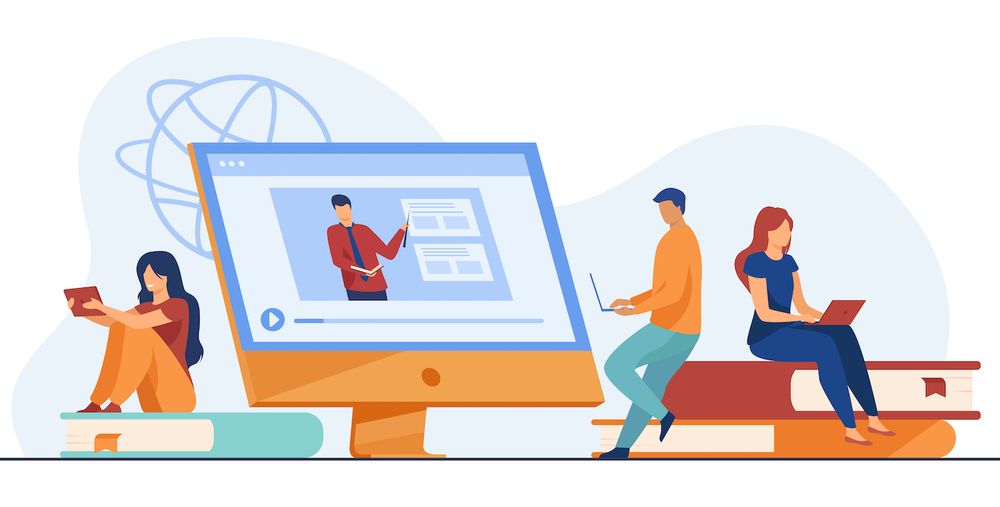Terms
"I come from a company with a model of business that is dependent on community growth as it's open source software," he begins. Therefore, he wished to build a secure Discord community with gated access to the content of WordPress as that's the place where his initial media project, virtualization.info was hosted, it would let him "recycle 20 years of experience".
He chose to go with WordPress and not because of his experience however, but due to the flexibility of the platform. "There exists a rationale 43 percent of all websites on the planet use WordPress," he adds. The maturity of the plugin industry means that the results you can achieve using WordPress is incredible and is done in a fraction of the time with other solutions."
Do not compromise: the importance of branding
Alessandro adds: "Many newsletter and blogging platforms do not offer much choice in creating the brand. They unify the look and feel of the site, so everyone is exactly the same. It is possible to customize the theme slightly, and you can add your logo, but they are only minor modifications.
"Every newsletter or blog looks identical. That doesn't work for me. Also, as I mention on social media, don't sacrifice the option that you find most effective. Do not compromise on doing the best work you can do just to check a box. Making compromises on your work is one of the things which can cost you time and again many times over."
Screengrabs of the initial virtualization.info website
"I developed a brand users remember from 20 years ago and still write to me about. I must have complete freedom and flexibility to create and shape every single pixel on this web property so that it is enforcing my own brand. I want to advance my brand and not any other publishing brand."
Becoming valuable: niche and voice
"Two factors are crucial when creating your own online publication" Alessandro continues. "The first one is to find your niche. This is easy to state, but difficult to achieve!" he laughs.
He says that there's not any value in having someone else who is covering the same subjects like other individuals with the same perspective. "You can cover the same topics, and that can be about cooking, politics or crochet, squash, or anything else you want to However, you need to be able to see things from a different angle. And that defines your niche how you approach things is different."
He elaborates the concept of Synthetic Work is looking at AI from a non-technical point of view, and how it impacts the economy, jobs, industries as well as society. "If you look at cooking, for example you could find yourself in a niche where your perspective is about the science of it, which is something rarely discussed - maybe how, at the most fundamental level of chemical what makes something taste good.
The second step is to identify your personal voice. "Human creatures learn through imitation the way we think, "Wow I love the way the person's writing style' then you attempt to imitate the way they write, which is fantastic - that's the way to get as much knowledge as you can. Then you have to get to a point where you can develop your own voice, which is terrifying!"
It's not easy to consider that some people won't enjoy the way you view at the world, or write about it, but this is the only way you can be different from the rest. "If you've got the same style or similar approach to everyone else, you will disappear quickly."
The author continues: "People don't read for content. This may sound counterintuitive, but people read for the reason that they believe in you: they are curious about you as a person which then translates onto what you communicate." He advises readers to ensure their personal style is evident in the tone they use when you talk about your subject matter.
Alessandro present on stage at OpenStack Community event held in Silicon Valley
Alessandro mentions that he's witnessed this happening for over 20 years and still sees the phenomenon on a regular basis. As an example I was reading a guide for students who are considering the idea of pursuing a PhD that was composed by one of the cofounders of OpenAI. It is not related to artificial intelligence, but it's an old post that was written by him some time ago. In this article, he advises going to conferences. The author suggests looking not so much at the schedule and more at the speakers. You should look for those you have admired and know or have heard of who are great - even if what they present doesn't align to your research."
Alessandro says that this is an excellent example of the point he is making: get people interested in what you do and the way in which you express things, and then the things you talk about can be a secondary matter. "Even when they may not be with you, they will desire to hear the things you say nonetheless because they have come to admire you and believe that they have a valuable contribution to their lives."
More details on Synthetic Work
Read more on Alessandro Perilli and his Synthetic Work newsletter on synthetic.work.
